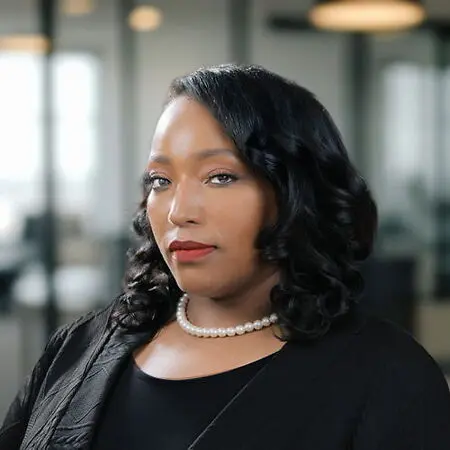Nicole Connell, M.Ed., ACHE

Nicole Connell, M.Ed., ACHE, is an accomplished senior executive with over 20 years of leadership in health and human services, health equity, and public service strategy. Currently serving as the Senior Executive Director of Adult Behavioral Health Services at Merakey, Nicole leads a diverse behavioral health portfolio across Southeastern Pennsylvania. Her work focuses on operational efficiency, financial growth, and community-driven innovation, particularly at the intersection of behavioral health, social services, and education. A recognized change agent, Nicole has successfully spearheaded initiatives such as Philadelphia’s first Adult Behavioral Health Urgent Care Center and has been honored as a 2025 "Forty Under 40" recipient by City & State PA for her transformative impact on the region.
Beyond her professional achievements, Nicole is a devoted advocate for equitable access to care and resources that address the social drivers of health. She is actively engaged in volunteerism, serving on multiple nonprofit boards and giving her time to causes that uplift underserved communities. A proud graduate of Temple University and Eastern University, Nicole balances her impactful career with a full personal life—she enjoys game nights, family travel, and raising two children alongside her husband. Through her work and her life, Nicole exemplifies leadership, compassion, and a deep commitment to service.
• Temple University- B.S.
• Eastern University- Master's
• Forty Under 40
• Marquis Who’s Who America-
Honored 2025 Listee
• 2021 People on the Move
• Outstanding Leadership Award
• Phenomenal Woman- Community Service Award
• Leadership Philadelphia
• American College of Healthcare Executives
• The Alliance of Community Service Providers
• NAACP
• Robert W. Sorrell Scholarship Foundation
• Philadelphia Youth Network
• YouthBuild Philadelphia Charter School
What do you attribute your success to?
I would attribute my success to my personal lived experiences with family members, friends, and community members who have been impacted by inequitable access to resources. Witnessing the challenges they faced ignited my passion and commitment to ensuring others have access to the supports they need. Those experiences taught me that when people are connected with the right resources and healthcare, they are not only able to meet their needs but can truly thrive.
My drive comes from a deep belief that all people deserve the opportunity to live fulfilling lives. I’ve seen firsthand how the right supports can transform someone’s journey, and that belief continues to guide my work and dedication to improving the lives of others every day.
What’s the best career advice you’ve ever received?
The best career advice I ever received was to own the fullness of my voice, even in rooms that are not yet ready to hear it. That wisdom has carried me through every season of leadership.
As women, especially in spaces where our leadership may be underestimated or the minority, we are often encouraged to shrink, soften, or second guess. The best advice I have applied is to always courageously step forward in those moments, not backwards.
What advice would you give to young women entering your industry?
Advice I would give to a young woman in the health and human services field, especially one interested in executive leadership, is to say yes to the table even when you feel unready. Too often young women hesitate out of perfectionism, imposter syndrome, or self-doubt. The reality is that no one ever feels completely ready for their next step.
Some of my greatest career opportunities came not because I had everything figured out but because I learned to quiet the doubtful inner voices and step into spaces that stretched me. Each time I leaned into risk and uncertainty, I discovered capacity I didn’t know I had. Growth rarely comes from what is comfortable. If it feels too easy, you are probably not pushing yourself far enough.
What are the biggest challenges or opportunities in your field right now?
The biggest challenges in behavioral health today are funding uncertainties and workforce shortages. Public programs face shifting budgets and reimbursement rates that make it hard to sustain services, while providers struggle to recruit and retain qualified staff. At the same time, these pressures create space for innovation. We have an opportunity to reimagine service delivery by integrating care in new settings, leveraging technology, and creating efficiencies that make systems more sustainable. Out of these challenges comes the chance to build a more responsive and equitable behavioral health system.
What values are most important to you in your work and personal life?
The values most important to me in both my work and my personal life are equity, integrity, and family. I believe deeply in doing the right thing for people and communities, even when those choices are difficult or complex. Equity means making sure that everyone has access to the resources and opportunities they need to thrive, and that principle guides my decisions as a leader. I also value family, both my own family who grounds and inspires me and the families I serve professionally whose strength and resilience remind me why this work matters.